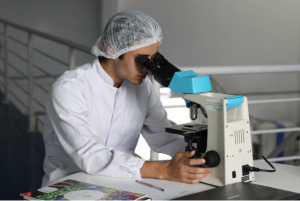The program for the first two decades is the same at all Faculties. It features pre-clinical and basic medical sciences, which are the important foundation for any medical specialization. Medical specialty begins at the next year of research; the program comprises pro paedeutic, biochemistry and pathology (pathological anatomy and behavioral physiology) clinical and unique subjects, based upon the orientation. And after finishing this course, you need certification for your job in the future. Below are some things you must know regarding medical education in Russia.
Features of Medical Education
 The principal characteristic of health education in Russia for the Faculties of therapeutic medicine and pediatrics is the debut of a brand new approach to internists and pediatricians’ practice that suggests a two-year continuing main specialization, one year while in the establishment and another year following graduation. The character of health education in Russia and its program at these Faculties was made to cover most general medical education within five decades. Sub specialty in clinical areas isn’t feasible through the undergraduate curriculum, as deep understanding of the primary clinical subjects is essential for physicians’ sufficient training.
The principal characteristic of health education in Russia for the Faculties of therapeutic medicine and pediatrics is the debut of a brand new approach to internists and pediatricians’ practice that suggests a two-year continuing main specialization, one year while in the establishment and another year following graduation. The character of health education in Russia and its program at these Faculties was made to cover most general medical education within five decades. Sub specialty in clinical areas isn’t feasible through the undergraduate curriculum, as deep understanding of the primary clinical subjects is essential for physicians’ sufficient training.
After primary health care function became evident from the 1970s, medical schooling in Russia became adapted to the target-problem. After the yearly assessments in Russian medical colleges after their fifth and fourth decades, senior pupils of Faculties usually devote the breaks between semesters in specialist training. Pupils are taught to utilize their knowledge, develop their special abilities, master up-to-date diagnostics and therapy procedures, and become familiarized with other work they’ll perform later on.
Process of Getting Medical Education
Following six decades of health schooling in Russia, pupils pass a state exam in line with the program, acquire a physician’s Diploma, and complete a 1-year internship in medical units under experts’ oversight. The educational methodology in Western medical colleges comprises lectures by the top specialists and regular practical classes during research. Training programs at medical colleges in Russia are corrected to people’s requirements in agreement with medical priorities. Therefore, in the 1950s, the non-communicable ailments became a genuine health issue; those subjects were bolstered and introduced widely into curricula.
It needs to be highlighted that 25 percent of the period inside the training course of all specialties is dedicated to practicing in the main healthcare level. Ultimately after completion of health education in Russia, pupils must pass state assessments generally. Particular medical issues to get a diploma as a doctor of general medicine, a pediatrician in the Faculty of Pediatrics, as a sanitary officer in the Faculty of Hygiene, as a stomatologist in the Faculty of Stomatology, or a pharmacist in the pharmaceutical establishment or college.
